Photo: Theo Wargo/Getty Images
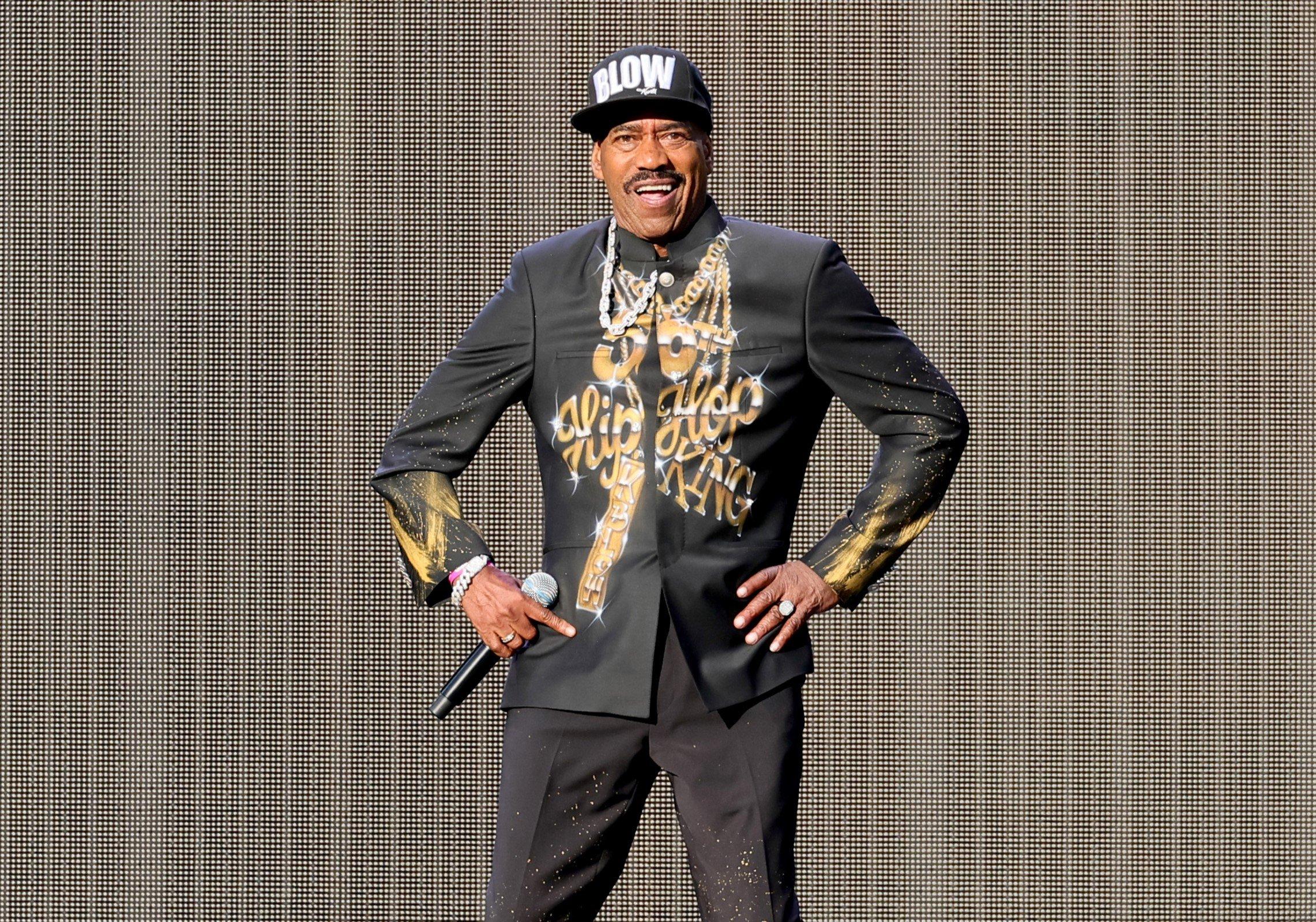
interview
Living Legends: Kurtis Blow On How Hip-Hop Culture Was "Made With Love" & Bringing The Breaks To The Olympics
More than 40 years after he became hip-hop's first commercial breakout star, Kurtis Blow is still moving the culture forward. The rapper and OG B-boy reflects on hip-hop’s rich history, and the impact of seeing hip-hop represented at the 2024 Paris Games.
On the eve of the first-ever Olympic breakdancing competition, hip-hop legend Kurtis Blow was thrilled. It was the first time one of the core elements of hip-hop culture had reached such a global stage.
Alongside DJ Kool Herc (whose breaks provided the soundtrack for B-boys and girls), Blow is credited with popularizing breakdancing. The rapper began breaking as a teenager in the early 1970s, as part of the Hill Boys breaking crew — named for the Sugar Hill area of Harlem where Malcolm X first started his galvanizing pro-Black movement —
And while the International Olympic Committee decided to remove breakdancing from the 2028 Olympics, Blow is unbothered. As far as he’s concerned, his legacy and the legacy of breaking itself is all but set in stone.
"It was definitely something special," Blow tells GRAMMY.com. "And I wasn’t the only one who realized it at the moment it was happening."
Born Kurtis Walker, the Harlem-based Blow began DJing when he was just seven years old. In 1979, the 20-year-old's "Christmas Rappin’" sold over 400,000 copies and turned the up-and-comer into a household name. But it was his follow-up single, 1980’s "The Breaks," that helped launch a whole new genre: rap music. "The Breaks" became the first hip-hop album to receive a gold certification from the RIAA, and proved that Blow wasn’t just a one-trick pony.
Kurtis Blow proved to be immediately influential on the then-nascent rap scene. When Rev. Run of Run-D.M.C. started his career, he billed himself as "The Son of Kurtis Blow" to give him an air of credibility that helped propel the hip-hop trio into the pop culture stratosphere. But Blow's influence didn’t begin and end with his "adopted son": Everyone from Russell Simmons to Wyclef Jean has worked with Blow, and he has been sampled by Nas ("If I Ruled The World" is all but an interpolation of Kurtis Blow’s song of the same name), KRS-One and many others. In fact, more than 100 songs have used samples from "The Breaks," and nearly 1,500 songs have used a sample or an interpolation from Blow’s discography.
Learn more: Essential Hip-Hop Releases From The 1970s: Kurtis Blow, Grandmaster Flash, Sugarhill Gang & More
Kurtis Blow was also one of the first rappers to sign to a major label (Mercury Records) and was the first rapper to be a multihyphenate (in addition to his music, Blow worked as an actor on films like In a Dark Place and California Dreamers, and was the musical coordinator for the legendary hip-hop film Krush Groove). Blow continues to work steadily in hip-hop today, though he eschews the legendary breaking parties in favor of cultural events that offer a new glimpse into the culture he helped create.
To wit, Blow is performing with The Hip Hop Nutcracker, in which Tchaikovsky’s classic score is set to breakdancing and modern hip-hop dance; the emcee will perform a brief set to kick off each show. A nationwide tour kicks off in Southern California in November and concludes at the end of December in Durham, North Carolina.
Kurtis Blow spoke with GRAMMY.com about the importance of bringing breaking to the Olympics, reconciling his ministry with modern hip-hop’s message, and his four-decade legacy.
This interview has been edited and condensed.
Breakdancing has been a huge part of hip-hop culture for many, many years — and it’s long overdue to be recognized on a global scale like the Olympics. What are your thoughts about seeing this movement that you started getting this kind of recognition?
This whole culture that we call hip-hop started back in the 1960s. With the Civil Rights movement, community organizers, and government officials all debating about something so basic: the right to all be seen as equal and free. It was a traumatic time, you know? But we had music that was so relevant to the whole movement.
By the time the late 1970s and early 1980s came along, everyone was trying to escape all of the traumatic racism that was still going on. And music became our escapism. That’s where breaking came in: everyone was just trying to mimic James Brown on the dance floor. You’d see one guy doing his thing, and everyone would form a circle around him. Pretty soon, someone else would join the circle and challenge him. And before you knew it, there was a whole competition — and whoever won became the most popular in the club.
That kicked it all off. To see it recognized on such a large scale just reaffirms, to me, that this hip-hop culture of ours was made with love.
There were breaking films such as 1985's 'Krush Groove' that were completely revolutionary in that it gave everyone — not just those within the culture — a view into the world of hip-hop, and suggested what it could become. At the time, you were becoming the first commercially successful rapper and one of the pillars of what would become the New York sound. Were you aware that you were on the precipice of something revolutionary?
I don’t want to call myself a visionary or anything like that, but I did know that this was something special, because I saw how quickly it spread around different boroughs in New York City.
From Harlem and the Bronx, and then over into Queens, Brooklyn, and even New Jersey, it was amazing to see everyone just gel around that whole hip-hop scene. As I said before, we all needed that escapism, you know? Forget about your troubles, just come and dance.
With me being in Harlem, right down the block from the Cotton Club and that whole mindset around dancing becoming America’s pastime — just coming from that era, where we had to go to the parties to have a good time — [I knew] that we had created something that would outlast us.
Not only did you attend divinity school, but you are also an ordained minister. How do you bridge those two aspects of your life and how do you reconcile being a rapper with being a minister?
That is such a great question, and thank you for asking.
It’s very simple: God is the Creator. God created hip-hop. We have to start with that, right here. God gave us the talent to perform the music; he gave us the passion to want to spread the music to the masses. He gave us the desire to say, "Hey, come take a look at me! God has blessed me with this — can you do this?"
Now, when you talk about the actual elements of hip-hop — that is, the emcees, and the message that we bring — it’s crucial to understand that we are commanded by God to uplift our community and to show them love. This is the actual essence of hip-hop: peace, unity, love, and just having safe fun.
My mission is to believe in the faith that God is real, and God is in the miracle business. I have seen nothing but miracles for the last 45-50 years in this thing called hip-hop. And it’s important to understand that God is in the mix, and we are all blessed by the common denominator known as hip-hop. It should be our mission to get that back.
As for what’s going on today — the nature of the lyrics, the gangster rap, and all the violence — it didn’t really start out that way, did it? And if we can inspire the future for our youth, then we’ve made a difference. Because the future is in their hands, and we need to inspire them.
But, as a counterpoint, times are different today. And what these men and women are speaking to may not necessarily be destructive — rather, there could be a case made where they’re merely being street poets, and telling the reality of life as they see it. What advice would you give to those people who are telling a different story than the one you told all those years ago?
We are called to be these soldiers, warriors, servants, and communicators. So I understand their reality is different, you know? The world is upside down. The kids out there are just telling it like it is. They’re communicating their reality.
But I think that we should not only communicate how it is, but how it could be. And how it should be.
Think of how different it would be if they also gave some inspiration for a positive future: "Yeah, we goin’ through this, we goin’ through that, but with God, you can overcome all of that. With prayer, you can have miracles, and blessings, come down."
Even if you just understand the nature of the reality that we’re going into right now — things like mass incarceration, the drug epidemic, gun violence, the war profiteering off of Black and brown bodies — it falls upon the shoulders of the elders of this community, this hip-hop movement, to inspire and communicate the possibilities to the younger up-and-comers.
They need to understand that they are the product of royalty. They are the descendants of kings and queens of Africa. They need to honor themselves and honor their ancestors, accordingly.
The culture of hip-hop isn’t just about the music. It’s about fashion, slang, cars, the sports — if you think about it, anthropologically, hip-hop is a civilization onto itself. But, as with all things, so much of it has been co-opted and mainstreamed. How do we bridge the divide between the originators and the colonizers?
Only love can bridge that gap between the ages, the races, our government — the diversity of all these different countries — you know, it needs to be all love.
This is what it’s going to have to take for us to change our present reality. And I feel that in hip-hop, that is the key to that future. The OG’s had the right mindset: peace, love, unity, and having safe fun. We need to get back to that.
When you look back on your career and the legacy you leave behind, how do you want to be remembered?
I remember being in divinity school at Nyack College in New York, and the professor asked the whole class the same thing. And I thought about it for a while, you know? I thought about being remembered as a pioneer of hip-hop — an OG breakdancer — a DJ when I was just seven years old — and an incredible educator.
But what stuck with me was being known as a man of God. That’s it. Because that encompasses everything that I have been through and survived. All of my success, and everything you know about me, comes from God — and to God be the glory.
Latest Rap News & Music
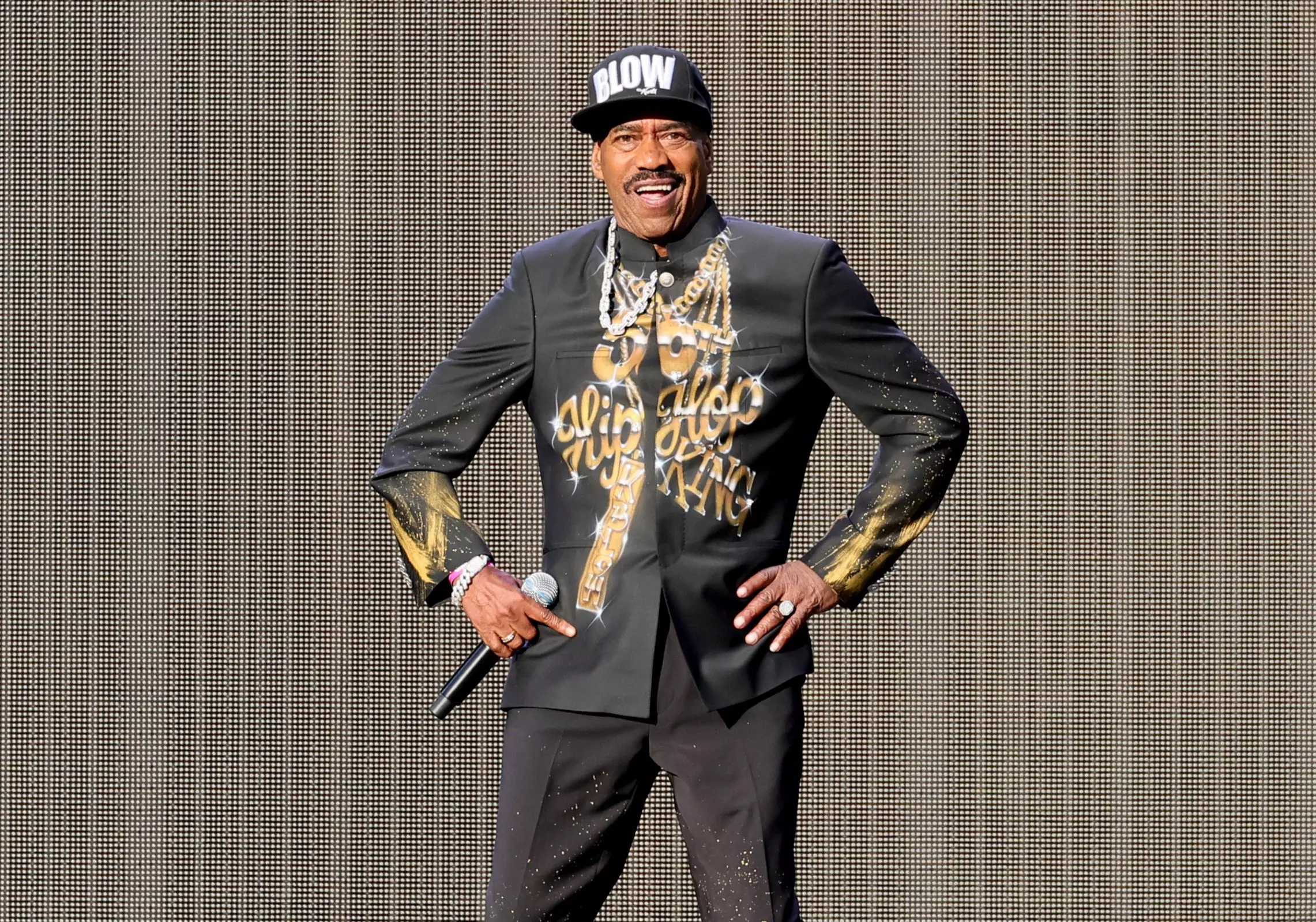
Living Legends: Kurtis Blow On How Hip-Hop Culture Was "Made With Love" & Bringing The Breaks To The Olympics
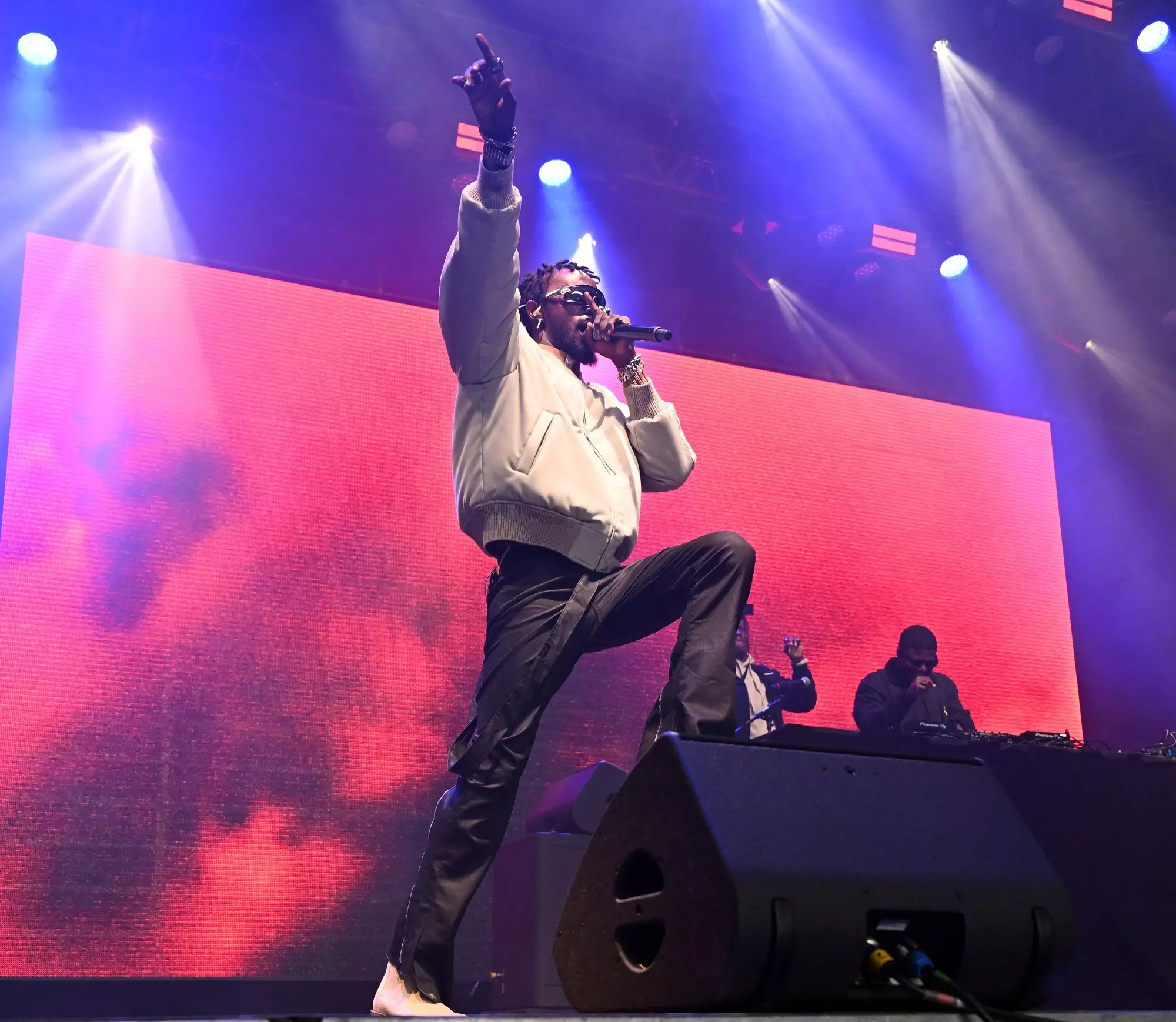
10 Artists Essential To Ghanaian Hiplife: Reggie Rockstone, Sarkodie, Mzbel & More

Ice Spice Is The Drill Queen On 'Y2K!': 5 Takeaways From Her Debut Album

Watch Young MC Win Best Rap Performance In 1990

On Rakim's 'G.O.D's Network (REB7RTH)' The MC Turned Producer Continues His Legacy With An All-Star Cast
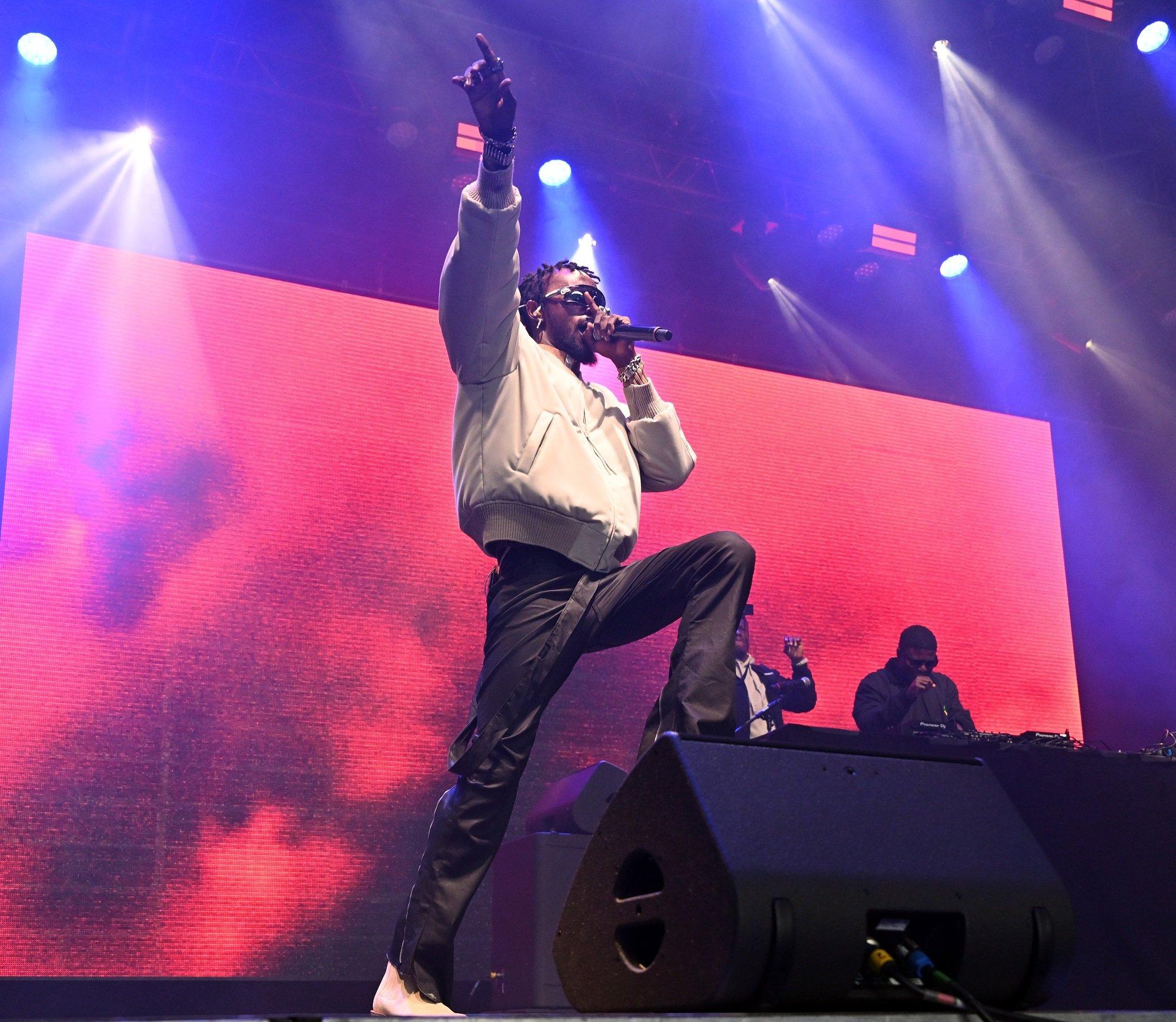
Photo: Rune Hellestad - Corbis/Corbis via Getty Images
list
10 Artists Essential To Ghanaian Hiplife: Reggie Rockstone, Sarkodie, Mzbel & More
In the 1990s, artists and producers from Accra merged the sound and aesthetic of American hip-hop with their Ghanaian sounds and culture. The resulting genre, hiplife, significantly influenced the music coming from Ghana and the African continent.
Ghana has been home to some of the most recognizable musical exports from the African continent, contributing heavily to the globalization and development of the continent's sound. While highlife is regarded as the country’s biggest sonic export, the introduction of hiplife some 30 years ago invigorated the Ghanaian music scene and birthed some of the country's most important artists.
Hiplife music blends hip-hop from the West with Ghanaian highlife sounds like Jama and Kpanlogo — a sound and dance by the Ga people, who make use of nono (metal bell), fao (gourd rattle), and local drums to play beats. These elements were fused with funk, bass, and boom-bap to create hiplife. Hiplife and hip-hop have aural similarities and both use rapping; both genres also reflect a larger culture.
While Gyedu-Blay Ambolley is considered one of the earliest rappers, as demonstrated on his 1973 song "Simigwa-Do," the term "hiplife" was only coined in the late 1990s by genre pioneer Reggie Rockstone. Still, American hip-hop had arrived in the Ghanaian capital of Accra by the early '90s and local rappers began to release their own music soon after. Duo Talking Drum were among this early cohort, and their single "Aden" was an underground hit in 1993.
As a movement and culture, hiplife is also an identity, created to encourage people to be daring in their exploration of sound. Pioneering hiplife artists like Root Eye Samini and Shatta Wale (then known as Bandana) fused dancehall and highlife in the early 2000s to make music which could connect with local audiences.
Collaborations between artists and producers have been crucial in defining the sound, evolution, and amplification of hiplife. Just as hip-hop has developed a plethora of subgenres, hiplife has birthed other sounds such as azonto and asakaa. An offshoot of asakaa, Ghanaian drill, was among the elements in the new Best African Music Performance Category at the 2024 GRAMMYs.
The story of hiplife includes many important producers, artists and labels, including Kassa Records, DJ Rab, Zap Mallet, Akyeame, Panji Anoff, JayQ, Hammer, Ex Doe, Chicago, and Okomfour Kwadee. Going forward, the mantle will fall on artists like TicTac, Abrewa Nana, Appietus, and much later a younger generation including Asem, Richie Mensah, and Beeztrap KOTM continue to amplify hiplife. Afrobeats artists have also taken notice; Tic Tac and Tony Tetuila’s "Fefe Ne Fe" was sampled on the 2019 song "Gbese" by DJ Tunez feat. Wizkid and Blaqjerzee.
With African music continuing to gain global recognition, the rich sounds emanating from the African continent are ripe for exploration. Read on for 10 artists who have been essential to the story of hiplife music.
Reggie Rockstone
Reggie Rockstone is regarded by many Ghanaians as the godfather of hiplife, having paved the path for many to pursue rapping as a career. Working with producers like the late Rab Bakari (DJ Rab Bakari), Reggie set the ball rolling for hiplife through songs like "Tsooboi."
His 1997 album Makaa Maka offered an early template for the sound, fusing Western-influenced hip-hop with traditional Ghanaian highlife sounds. The linguistically adept Reggie Rockstone — a Ghanaian boy who was raised in the UK and New York — rapped in both English and impeccable Ghanaian Twi to the shock and admiration of many. By this singular act, he proved that it was cool to rap in your own dialect and not necessarily in English, like American rappers of the '90s.
Reggie's will to make Ghanaian rap music stand out via releases like Me Na Me Kae, and Me Ka did not go unrewarded. He also scored hits with his singles "Keep Your Eyes on the Road," "Plan Ben," and "AH." He has also collaborated withdancehall giant Beenie Man and Nigerian legend 2Face.
Lord Kenya
Lord Kenya rose to fame when he joined Slip Music, one of Ghana’s celebrated music labels of the late '90s and mid-2000s. His musicality was undeniable, and his hardcore rap style was adored by many for its energetic flow and delivery. Likened to Tupac Shakur, Kenya was very direct whenever he was on the mic. He never shied away from any lyrical battle thus earning him the title "rap heavyweight." His swagger on and off the mic made him a star, with many eager to catch him anytime he performed.
Lord Kenya's street affinity, coupled with great stage performances, left a mark on Ghanaian audiences. His albums — including 1998's Sika Card, Yesom Sika, and Sika Baa — solidified his position as one of hiplife’s most important artists. Kenya's hit singles "Enyomo," "Medo" and "Sika Mpo Mfa Neho" as well as his verse on the late Daseebre Dwamena’s song, "Kookoo" ushered in a street approach to the rap scene, as seen in the careers of rappers like Kwaw Kese and Kweku Smoke in later years.
Obrafour
Revered, celebrated, and crowned by music rap purists in Ghana as "Rap Sofo" (high priest of rap), Obrafour influenced multiple generations of rappers in Ghana. The artist first gained popularity in the late '90s with his cadence and mastery over his mother tongue, Twi, as well as his storytelling, lyricism, and wisdom.
Obrafour’s flow complemented the work of legendary producer Hammer, who brought hard-hitting drums, horns, and legendary sharp chords to Obrafour’s 1999 album Pae Mu Ka. The album is regarded as the bridge that connected older audiences who dismissed hiplife as a passing fad and the youth, who regarded hiplife as the future of Ghanaian music. Today, Pae Mu Ka is as important to hiplife as Nas’ Illmatic is to hip-hop.
Pae Mu Ka was the first of several collaborations between Obrafour and Hammer. Together, they created a sound that would influence generations of rappers. Obrafour is held in high regard by rappers such as M.anifest, Guru, Ko-Jo Cue, and Pappy Kojo.
VIP
Established in Nima, a suburb of Accra, VIP underwent significant personnel changes but never let their commitment to hiplife music falter. Original member Friction later onboarded Promzy, Prodigal, and Lazzy (who later changed his name to Zeal), and Bone championed the vision of the group for over a decade (as well as the departure of Friction, Bone and Promzy).
Backed by the group's diverse personalities, VIP quickly became one of the biggest music exports of the country, winning six awards at the Ghana Music Awards in (2004), including Song Of The Year for the 2003 hit title track "Ahomka Wo Mu." Over a two-decade period, the group released albums and scored several hits and collaborated with some of the continent's finest, including 2Face, Patoranking and a host of others. Vision in Progress (VIP) epitomized the cultural ethos of hiplife: raw energy, passion and talent.
When Reggie Rockstone, a longtime admirer of the group, arrived in 2014, the group became VVIP. The group’s success would be further cemented as they crossed over into Nigeria and other parts of the world. "Ahomka Wo Mu" has been sampled and interpolated by various musicians, including songs by MUT4Y & Wizkid and Kida Kudz.
Tinny
While Twi rapping artists dominated the hiplife music industry, very few artists were successfully making music in other local dialects. Tinny — a rapper who raps in Ga, a language spoken by the people of Accra — rose to the occasion with both rap and fashion. Another product of Hammer’s Last Two record label, Tinny had an unmatched aura that earned him the moniker "Sexy Man Tinny." Early aughts albums such as Makola Kwakwe, Aletse (Akwe Polo), and Kaa Bu Ame still echo in today’s industry. His later works with record producer Richie Mensah on singles like "Ringtone" and "Now I Know" further entrenched his name in Ghana’s hiplife history.
Tinny’s will to pursue rap music in Ga laid the foundation for artists such as Edem, who raps predominantly in Ewe and to a degree music duo Blackstone who performed in Dagbani. Tinny also featured in the BET Hiphop Awards International Cypher (Ghana) alongside Reggie Rockstone, Sarkodie, D Black, Edem, Kwaku-T and Baby G (2010).
Mzbel
In a male-dominated industry, Mzbel created change that still reverberates today through the careers of women like Amaarae, Wendy Shay, Sister Afia and Gyakie. Following in the footsteps of those before her, like Abrewa Nana (a household name in the early 2000s for her role as one of the leading female artists in hiplife), Mzbel's singing and rap skills were not just catchy, but thought-provoking with themes of love, sex, body positivity, and addressing abuse.
Mzbel's non-conformity made her a target by some aspects of the industry. The general public who felt she was a bad influence on younger girls, due to the sensuality in her lyrics and imagery. Yet she was unphased. Mzbel scored national hits with her albums Awosome, and 2005's 16 Years, and touched on issues many regarded as controversial. The rapper stood up for women’s rights and encouraged women to be vocal about things society heavily criticizes women for. She ensured that women were not bullied into silence but instead express themselves fully through art. Her hit single "16 Years" with the late Castro touched on the issue of sexual harassment and abuse young girls face at the hands of older men and, as such, became a national topic.
Sarkodie
Since bursting onto the scene in 2008, Sarkodie has churned out multiple hits year after year with a unique flow and delivery. His records touch on multiple subjects, including friendship, family, love, heartbreak, and bad governance. His hold over rap in Ghana has been extended across the continent, making him one of the most influential rappers in Africa.
In 2012, Sarkodie played a pivotal role in the amplification of azonto music (an offshoot of hiplife that melds dance music genre from the early 2010s with upbeat fast-paced sounds and witty comical lyrics) with his song "U Go Kill Me" with fellow rapper E.L. Winning "Artist Of The Decade at the" Ghana Music Awards (2019), cemented his influence and status.
Rapping predominantly in Twi, Sarkodie’s ability to find pockets on the beat has made him a frequent featured artist by the likes of Mr. Eazi, Ice Prince, Flavour, Victoria Kimani, Patoranking and a host of other important artists in Africa. Sarkodie won Best International Act: Africa (2012) and the inaugural Best International Flow at the BET Hiphop Awards in 2019.
Asakaa Boys
In a time when hiplife had taken a back seat to Afrobeats and amapiano on the Ghanaian market, a group of artists from Kumasi (Kumerica) — a slang used to describe people of Kumasi who enthusiasts of American music and culture — burst onto the scene via asakaa, or Ghanaian drill. Inspired by Pop Smoke’s drill music, the sound reflects their lifestyle on the streets of Kumasi, hiplife elements, and American hip-hop culture such as fashion.
The name asakaa originates from the word saka, a flipped slang of the Twi word kasa, which means to speak. Saka, a style of speaking where words are pronounced backwards, was heard in the songs that were released by the Asakaa Boys. The asakaa sound is credited to the Kumasi-based Life Living Records, and signees Jay Bahd, Kawabanga, O’Kenneth, City Boy, Kwaku DMC, Reggie, Sean Lifer, Braa Benk and Skyface SDW under the moniker The Asakaa Boys.
With songs like "Akatafoc", "Sore," and "Agyeiwaa," and leading the charge, Asakaa (Ghanaian Drill) has gained recognition locally and internationally in the 2020s.
Black Sherif
Black Sherif may be young, but he has already charted a path of success for himself in Ghana’s music industry which many are yet to match. Black Sherif’s sound, writing, fashion, and mannerisms have earned him admiration. He first tasted popularity when his song "Money" went viral in 2019; two years later he regained public attention in 2021 with his First and Second Sermon songs and after a Burna Boy cosign on "Second Sermon Remix," Black Sherif's popularity soared.
The artist has gone on to deliver multiple hit songs such as "Kweku The Traveller," "Soja," and a monstrous guest verse on Odumodu Blvck’s "Wotowoto Seasoning." In 2023 he won Artiste of the Year at the Ghana Music Awards and aBET Awards Best International Award. Additionally, he has performed on global stages atMOBO Awards, Wireless Festival, and 2023's AfroNation.
King Paluta
With a charisma like that of Lord Kenya, King Paluta is an energetic rapper with some "thugness" in his delivery influenced by life on the streets of Kumasi. As a young man, he often slept in the studio, where he learned how to operate the equipment in the studio and dropped his first official single in 2015.
Despite releasing music and being popular in Kumasi, he would only gain national attention in 2023 for "Yahitte," which earned him the award as the Best New Artist at The Ghana Music Awards in 2024. In the 2024 alone, he has scored two charting-topping singles, "Aseda" and "Makoma," making him arguably the hottest artist in Ghana.
As a student of hiplife, King Paluta has fully embodied the genre as evident in his music. He has positioned himself to carry on the legacy of those before him as far as hiplife is concerned, and he is on track thus far.
More News About African Music

10 Artists Essential To Ghanaian Hiplife: Reggie Rockstone, Sarkodie, Mzbel & More
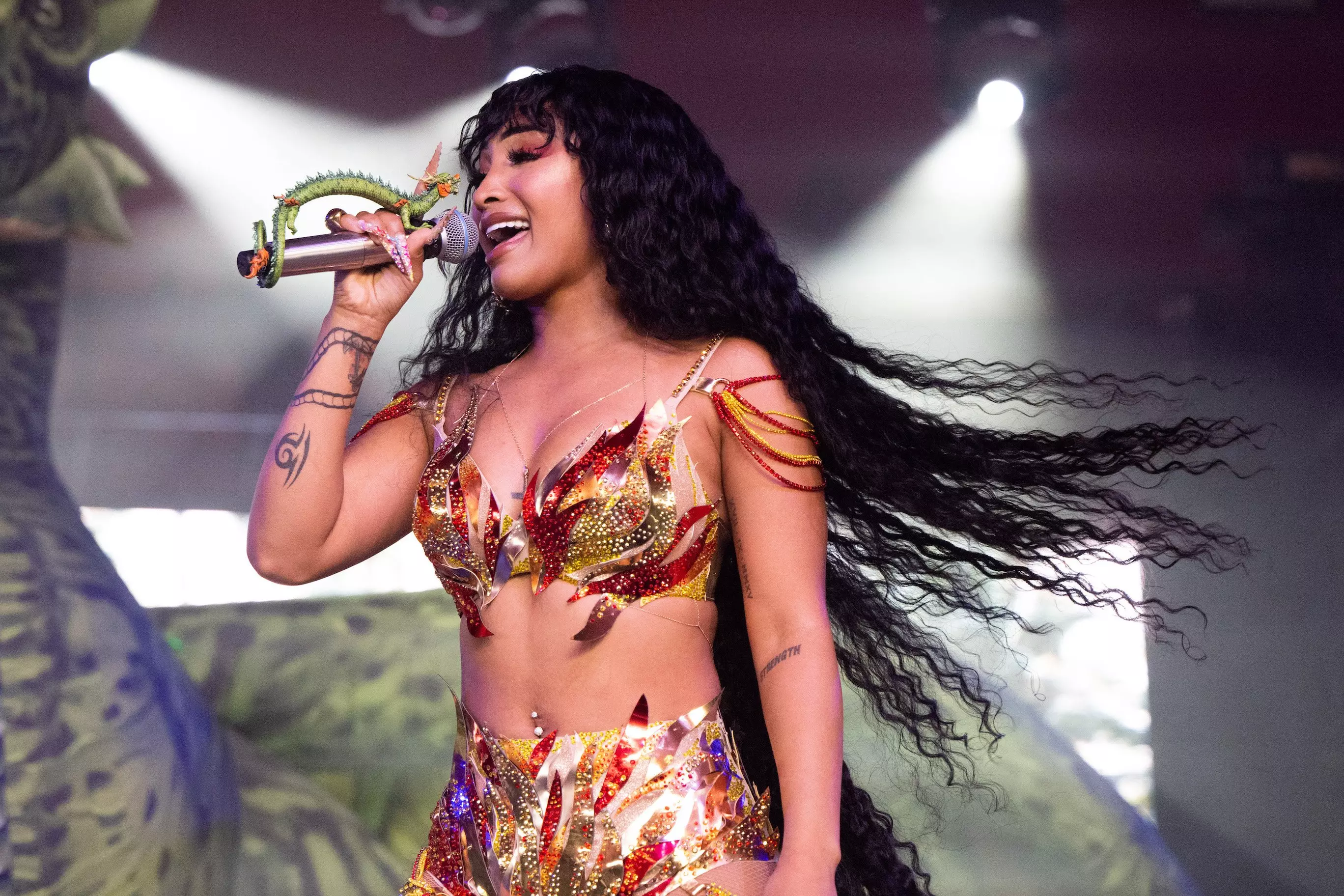
8 Can't-Miss Acts At Afro Nation Detroit 2024: Shenseea, Ayra Starr, Kizz Daniel & More
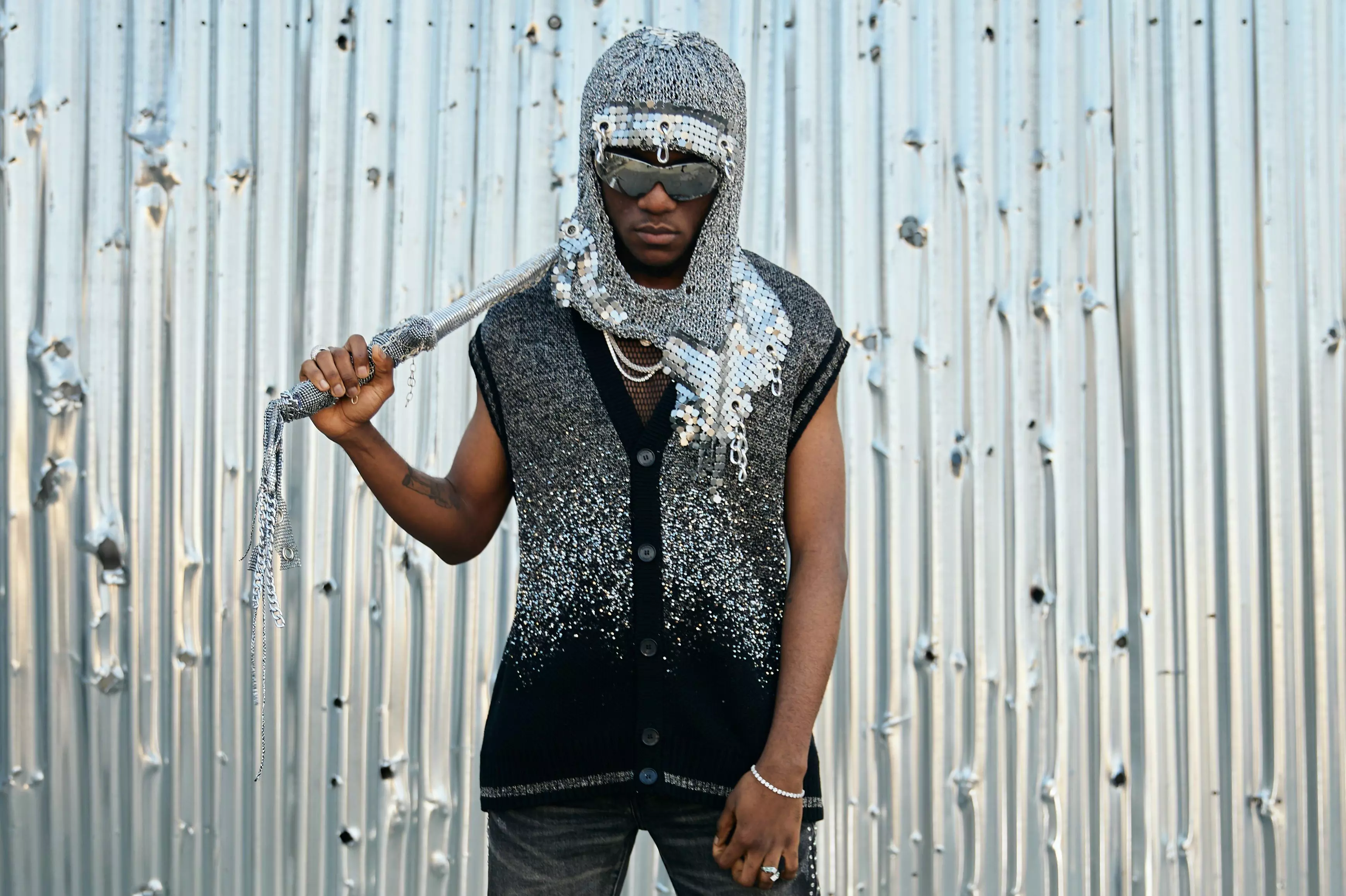
Meet Victony: The Afrobeats Sensation Sharing Importance Of Being 'Stubborn'

Watch Candy Bleakz Share Her AKG Microphone
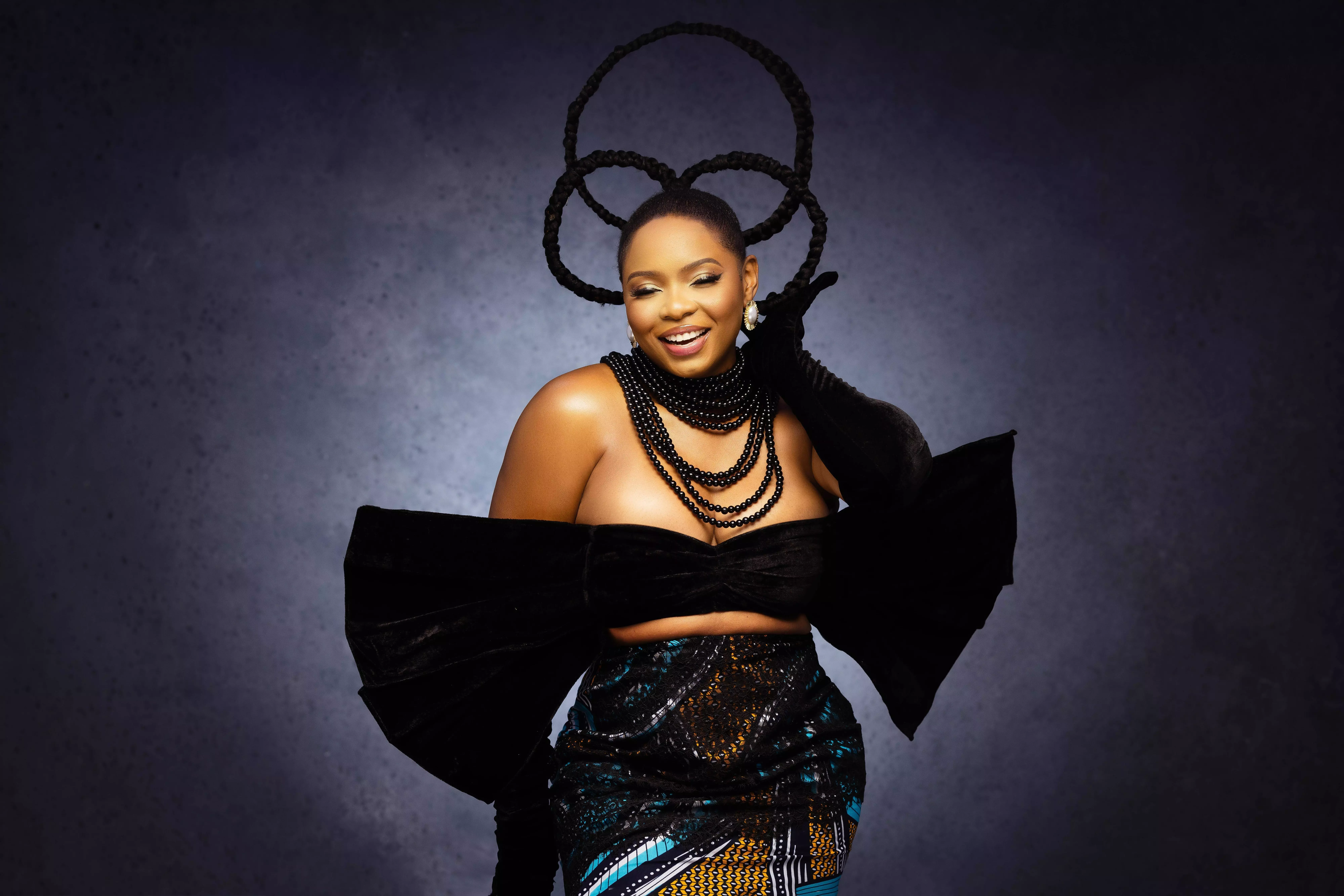
Afropop Legend Yemi Alade On New Album, 'Rebel Queen,' Historic Hits, & Working With Beyoncé
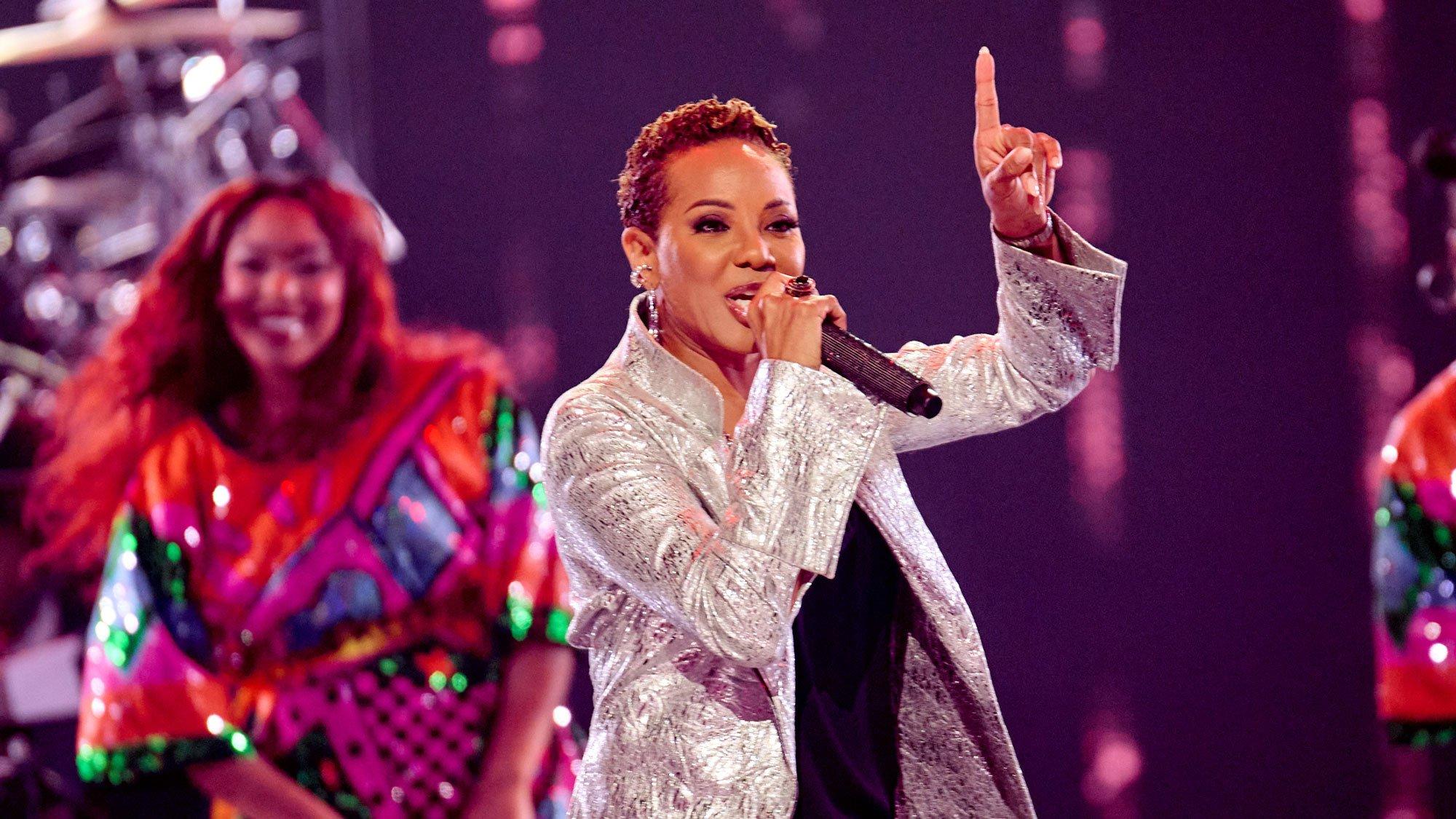
Photo: Derek White/Getty Images
interview
Living Legends: MC Lyte On Her New Album '1 of 1,' Building An Empire & Being The Guiding Light
"What I'm saying is real. And it's important," Lyte tells GRAMMY.com on her groundbreaking work and new release, '1 of 1,' featuring Stevie Wonder, Queen Latifah, KRS-ONE, and more. "It's just real talk, and I think we haven't had that for some time."
MC Lyte is hip-hop's original female emcee. Born in Brooklyn, the multi-hyphenate rapper, actor, entrepreneur, and fearless advocate for women is a pioneering force. Nine years since her last album, Lyte is finally ready to release her ninth studio album, 1 of 1, on Aug. 9.
Lyte is celebrated not only for her conscious lyrical prowess, but also for shattering gender barriers. At 16, she released her debut single, "I Cram to Understand U (Sam)," making a poignant statement about addiction in the '80s. In 1988, she unleashed her debut album, Lyte as a Rock, becoming the first solo female rapper to release a full album.
"[Early hip-hop] was so much freedom that we were able to really make a difference," Lyte tells GRAMMY.com. "That's myself with Heavy D and KRS-One and Rakim and all of the greats having the opportunity to use their voices the way that they wanted to use it."
Her 1993 release, Ain't No Other, earned her (and all female solo rappers) two firsts: the first GRAMMY nomination for "Ruffneck," and the first song to be certified gold. In 1996, she struck gold again with Bad As I Wanna B, featuring "Keep On, Keepin' On" with Xscape. Lyte's ability to illuminate powerhouse female voices in music shines through her collaborations with Janet Jackson on "You Want This" and Brandy's remix of "I Wanna Be Down" with Yo-Yo and Queen Latifah.
Earlier this year, she released two singles ahead of 1 of 1: "Woman," featuring Salt of Salt-N-Pepa, Big Daddy Kane, and Raheem DeVaughn in support of Women's History Month, and "King King" featuring Queen Latifah. Other legends on the new work include Stevie Wonder, KRS-One, Common, Q-Tip, Mary Mary, and Muni Long.
Beyond music, she is also a voiceover artist, actress, and active mentor through her organization, Sunni Gyrl, which focuses on artist development and creative services, and co-founded the Hip Hop Sisters Foundation, to promote positive images of diversity.
Learn more: 9 Teen Girls Who Built Hip-Hop: Roxanne Shante, J.J. Fadd, Angie Martinez & More
Lyte has been honored with a special salute at the 2024 Black Music Honors, received the I Am Hip Hop Lifetime Achievement Award at the 2013 BET Hip Hop Awards, and Harvard University's W. E. B. Du Bois Medal. At the Recording Academy, she has served in multiple roles, including President, Trustee, and Governor of the Los Angeles Chapter.
"I think we've sort of permeated every space of entertainment you can ever imagine," Lyte says of the culture in hip-hop. "Never could I have imagined years ago that we'd be here."
Over Zoom from the set location where she plays Detective Monroe in the BET original series "Angel," GRAMMY.com caught up with MC Lyte to discuss the new album, the source of her limitless passion, and her advice for the next generation.
This interview has been edited for length and clarity.
It's been nine years since you released your last album, Legend. What can fans expect from 1 of 1?
It's executive produced by Warryn Campbell, who by far has won his share of GRAMMYs through his own work and through production for others. But just so happens that he's also my pastor.
When we set out on this mission, I knew that I would feel comfortable enough to stay in the new lane that I have created for myself. It's interesting to now be in this space and not only navigate what's new, but also be at the forefront of what is my career. You know, starting at 16, 17, you're doing everything that everyone else wants you to do. You're standing that way. You're moving in that way. You're wearing this.
But this album, because I'm in a different, spiritual place, it felt good to be in collaboration with Warryn Campbell because there was nothing on it [trying] to be something that I was; something that he sees me being. And I think a lot of times, at least in my experience, producers have said, "Oh, we need to do something that sounded like that," or "You need to attack the mic like you did in that song." It's just a bunch of references made to older things.
So, 1 of 1, to me, is sort of a second coming of age. Where I'm able to stay in my truth and also give inspiration to others who are at a point where it feels like they can't get beyond the ridge.
**Your new single "Woman" was released during Women's History Month and "King King" was recently released with Queen Latifah. Who else shows up on this album?**
I made a lot of calls for this album. A lot of people answered the calls. So we've got some really great talent on the record, which I'm really excited about. We've got Common and Stevie Wonder and Q-Tip.
Our leading charge is a song called "Thank You," and that's with Mary Mary and Muni Long. And I just think, for all of the times where I didn't make the call, making a call at this time feels great to have people answer like, "Yes, I wanna do it." We've hit a space with people wanting to engage without, you know, [dollar] signs.
You've always been such an outspoken proponent of celebrating and sharing the experience of womanhood through your music — why is that so important to you?
I do believe having the opportunity to release music shouldn't be taken for granted. And so with that notion, I always, I guess, even from "I Cram to Understand U," my very first song, I always wanted to record with a purpose.
We recorded ["Woman"] before the pandemic, actually. And we knew that it needed to come out for Women's History Month. So if we missed Women's History Month, we had to wait for the next year. That's the type of focus that we wanted to have on that particular record. I think we were able to achieve it, and it's also one of those songs that we don't hear a lot of these days.
To have a song that celebrates women simply — with a wonderful hook by Raheem Devaughn — but then also seeing what's important to the two women that are in the song, myself and Salt, the perspective that we're coming from is in alignment with the way that a lot of women think. So we wind up speaking not just to them, but for them. Then to have Big Daddy Kane say all that he adores about women is just icing on the cake.
Celebrating 50 Years of Hip-Hop
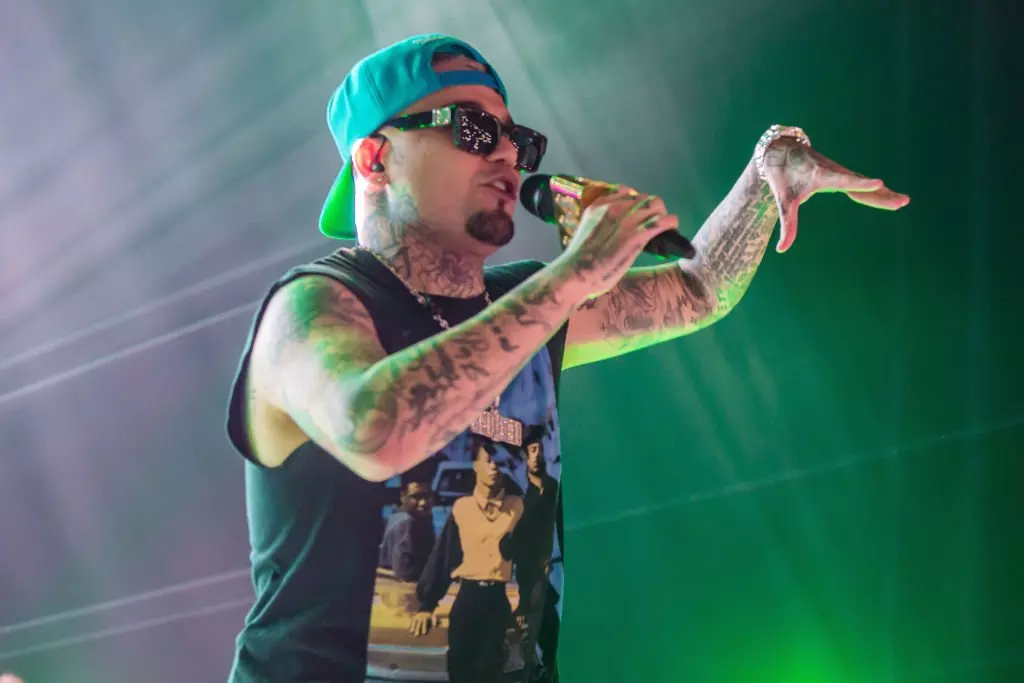
8 Latinx Rappers To Know: Eladio Carrion, Young Miko, Akapellah & More
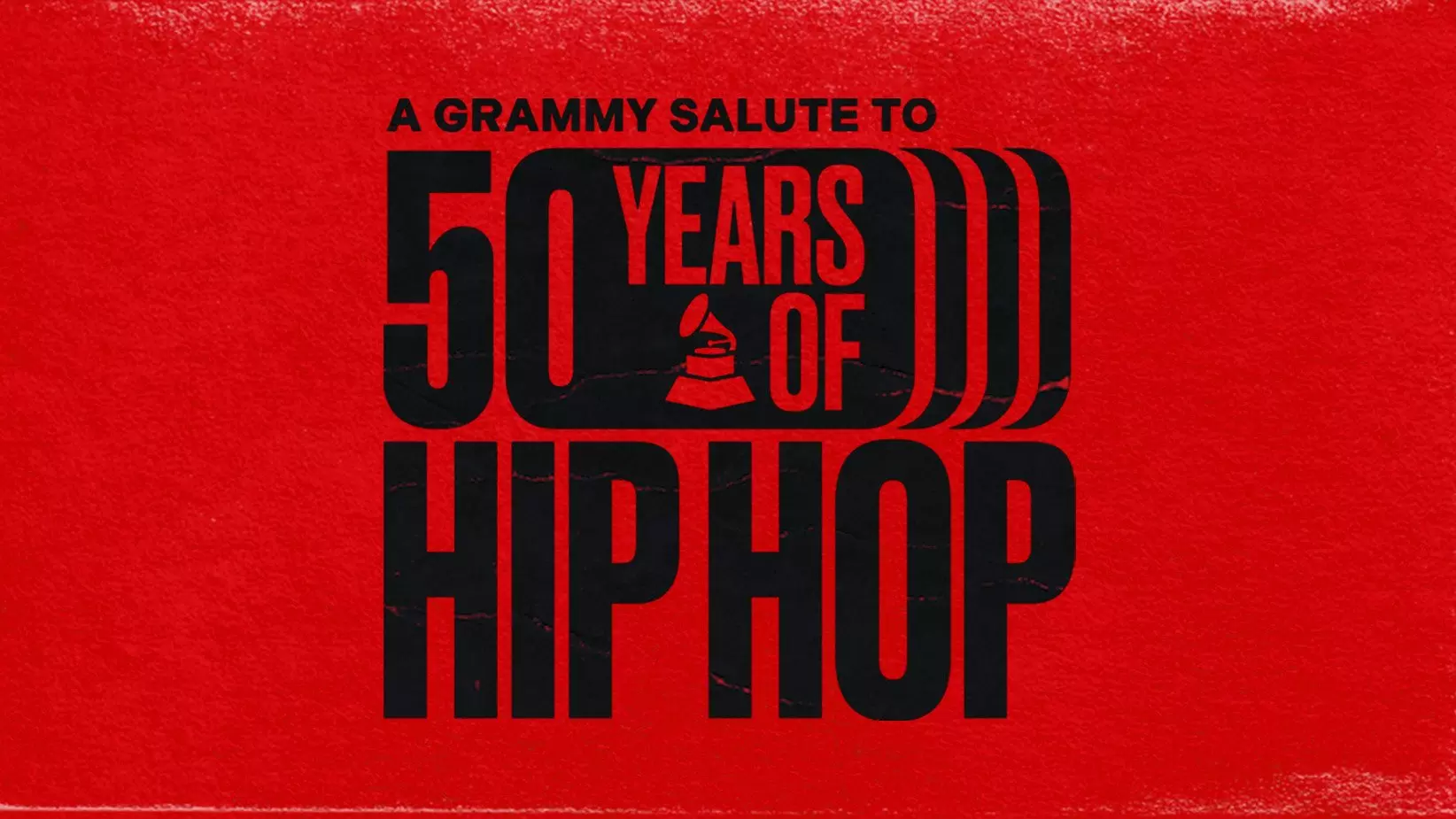
Additional Performers Added To "A GRAMMY Salute to 50 Years of Hip-Hop" Live Concert Special: 2 Chainz, T.I., Gunna, Too $hort, Latto, E-40, Big Daddy Kane, GloRilla, Three 6 Mafia & More Confirmed
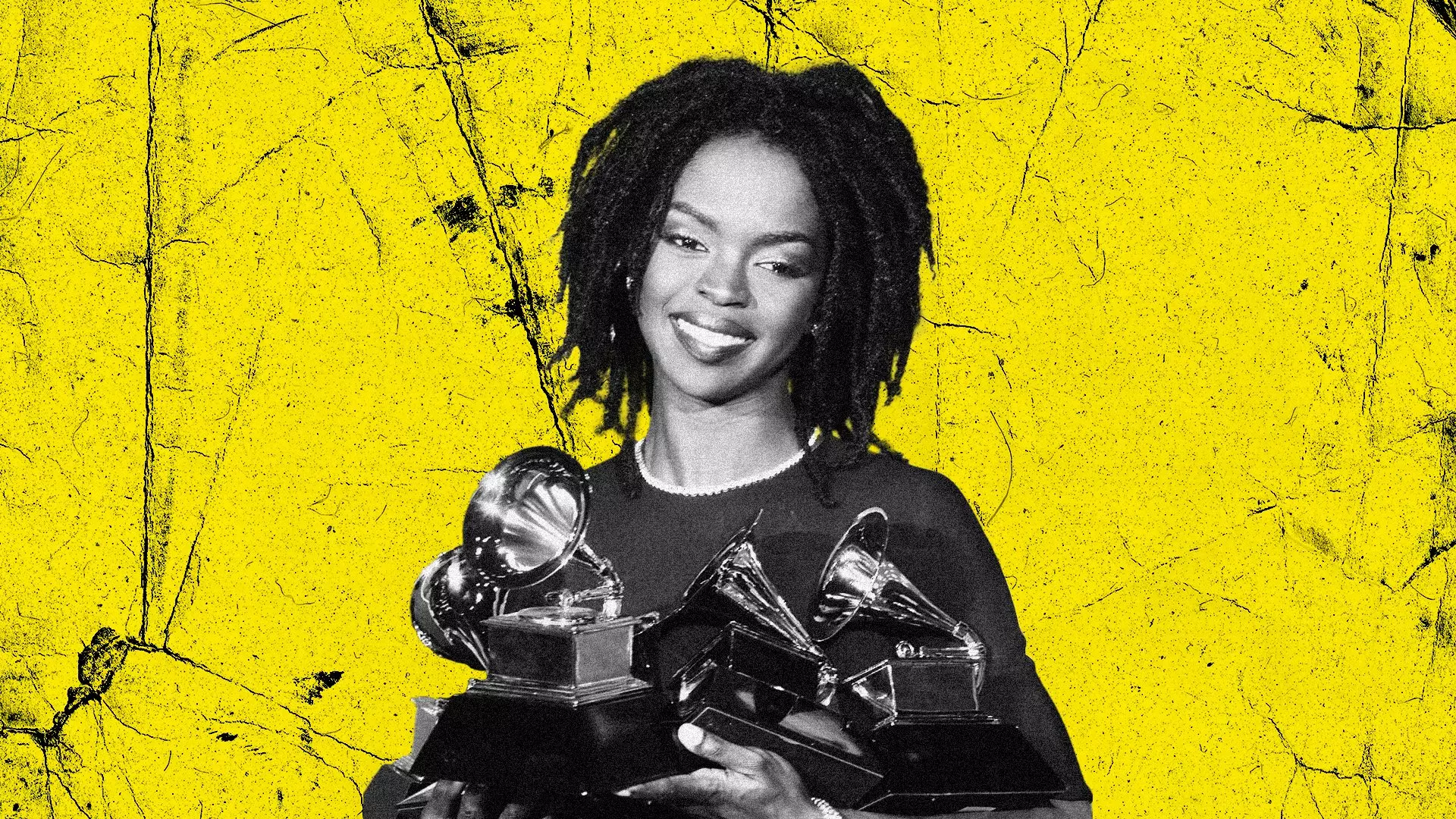
GRAMMY Rewind: Watch Lauryn Hill Win Best New Artist & Quote Scripture In 1999
To bring it all the way up to now to "King King," which wasn't really planned to do as let's do a song for women, and now let's do a song for men. It didn't go like that. And when I tell you that "King King" and "Thank You" I wrote in bed at about 1 o'clock in the morning — it was just God downloading the lyrics so quickly. I couldn't even believe it. As I was writing it, I was like, oh my goodness. It's gonna stop. It won't stop.
Having this kind of conviction for your testimony speaks to the spiritual nature of your music. How else does that influence your work?
It brings people together. I think it just falls to me in a space of responsibility. It's not anything that's separate from me. Often I'll let the music lead me. And if I listen to a track, and it's like, oh, this is great. But it doesn't incite power or purpose, I'll put that track to the side. When I'm ready to just rap about nothing or rap about how dope I am, I'll pick that up. But when I'm looking for something that I want a message attached to it, the music literally will lead me into the place where I need to be open to whatever God puts on my heart.
So much of what is said in "Woman" is who I am. And same thing with "King King," it's what I believe. It's the times when I see guys in huge celebrations when they're winning, you know, trophies for basketball, and it is just like one of the most vulnerable moments to see them as they celebrate with their friends. You can see the pain and the anguish and the triumph and the tears. And it just brings chills all over my body.
To see that from these men that usually have to have these hard faces with this stance that's so mighty and strong. That's how I feel about, specifically men of color. No no one knows him. And so I wanted to celebrate them and then also their walk towards responsibility and not shying away from what it means to be in a long lasting, loving relationship.
What about your relationships with men in hip-hop? I know you and Rakim just performed together on the same stage at Rondos Day in St. Paul, Minnesota.
The interesting thing about Rakim, he's probably one of the emcees I know the least about, on a personal level. But yet, whenever we're in one another's company, we have such a high level of admiration and adoration for one another. It feels like we know one another really well. I really give honor to that. However, there are others like Biz Markie and Heavy D and Chuck D and KRS-ONE. These are my big brothers in the business.
Those are people that would just call me and say, "What is going on? How are you feeling?" Or they'll see some performance… That's Big Daddy Kane. He's gonna tell me, "I like what you was wearing on there," or "I like the energy." It's all of these moments where I am the little sister. You know, they've seen me grow up in this business. And many times over, they've assisted in some capacity.
It's so funny how many layers, relationships exist within hip-hop, and you may not know it because you don't see it. But we know that, you know, that connection is real.
Has your songwriting or creative process evolved through the years?
Yeah. Absolutely. There's a few things that have happened. One, when you're in the spell of writing, stay there. When I was younger…you leave a song open ended to have to try to find the same sentiment days later. And it may not be there. And so [I've learned] to stay still during the writing process. And then I've also learned much more melody than usual.
Coming from New York, we have a way of wanting to put all the words that we can find to show how dope and how advanced we are as emcees. And I think for me to be able to slow down on this record and find melody and nuances that weren't as important to me before, I think that it really benefited me with this record, and that's where I will give the credit to Warryn to push me.
I remember long ago, I was talking to Nelly, and I was about to embark upon a new album. It might have been 14 years ago. But what Nelly began to explain to me, is that "I lived in New York for a summer, you guys moved so quickly. It's no wonder you all rap like that." He said, "Where we're from, we're driving to our destinations." I think that was brought to the forefront for me here with this album. I'm not in a rush. I don't need a lot of tricks with what it is that I'm saying because what I'm saying is real. And it's important. I don't need a lot of influence. You know, I'm simply speaking. It's just real talk, and I think we haven't had that for some time.
You live in Los Angeles now, but do you get back to New York?
I've lived in Brooklyn. I've lived in Manhattan. I've lived in Queens, and I've lived in Jersey. And then I came to California. I've been in California for some time now. But I go back and forth often enough that I don't really feel like I'm missing anything. I'm going back this first week of August, which is pretty exciting, doing a lot of press for the album, and then also, performing at Wingate Park, which is where I attended high school.
**Speaking of, where are we going to see MC Lyte performing soon?**
I'm on the Queens of R&B tour. So we did Atlanta, Charlotte, New York, and then Madison Square Garden. There's going to be a show [in Los Angeles] at the [Kia] Forum. Cincinnati Music Festival, I'm performing out there, and I'm doing "King King," bringing them, you know, some new music at the same time, which is pretty exciting.
You also have a full plate with your other endeavors: acting, voice overs, mentorship. Do you get fuel from these different activities to inspire the other work you do?
Absolutely. I'm actually on set now. I played detective Monroe in a [BET] show called "Angel." I'm on set all week with this.
We have a full fledged production and management company [Sunni Gyrl]. Right now, our premier talent is Van Van, who is an internet sensation turned actor, recording artist. She's actually 5; she just released her first album. She also plays a character called Vancy with Snoop Dogg on Doggyland.
We've got other talent, gospel singers, Dave Hollister. And then production wise, we had a sitcom that I wrote ["Partners in Crime"], and we did some really great things with that with AMC. And now we've got a few deals around town with different projects, TV shows, cooking shows, competitive shows. I just signed on to be music supervisor for a short film called The Memo, by a new company called A Seed Productions and it's pretty powerful. I'm looking forward to all that comes from that.
But, yeah, each day it's a different hat. It makes it completely exciting.
What drives you to continue to commit yourself to mentorship and fostering new talent in the next generation through all that you're doing through Sunni Gyrl?
It just feels it feels like the right thing to do. I don't know any other way. And it's crazy because I meet people all the time that had met me at a younger age. And they say to me, "You said this to me and that really mattered at that time. I wanna tell you what it did for me."
My close friends would call me grandma because I'm always imparting something that can be used later — and I don't even know that I'm really doing it. I'm just talking. It's just the idea of never being afraid to share your weaknesses and your shortcomings. Just being an open book to help someone else get to the next step, the next phase.
There have been some autobiographies that I've read throughout time, and you know the ones that are just ink on the page. And you know the ones that had to see past their tears to actually write it. And that alone is what brings people closer to you. It's the human bond. And if you're willing to just be that open book, so many people can learn from what it is that you're saying. And it may not even be what you're saying. It could be the cornerstone for them to go get the knowledge or, you know, educate themselves about something completely different. I think as an emcee, I have to really be in tune with the power that I have and that words are powerful and have meaning. And so why not use them, responsibly and purposefully?
Can you tell me a bit more about the importance of listening? And have you always felt like a good listener?
No. Even now, it's still a struggle with me. You know, acting is all about listening.
I think a lot of times [what] we do in life is we take the part that incites some sort of reaction, and then we don't even pay attention to what was said before or after. For me, it's important that I slow down in order to listen. Because first off, I'm quick. And so are a lot of other people.
I've tasked myself each and every day with slowing down enough to listen.
Listening during acting has taught me how to listen in life. And that not everything said deserves a response or requires a response. It's the admittance of not knowing that's humbling.
How do you find the energy? What is the source of this well that you're continually pouring from?
The source: God. That's all I can attribute it to, because it's certainly not me. I just allow myself to be used as the vessel to get the thing done. It's a part of the dream. So while I'm doing it, I'm just grateful like, wow. I asked for this. Oh, yeah. And I asked for that. And so I only ask that God give me the wherewithal to handle it as it comes and also to say no to the things that I just don't have time to do and don't fulfill the ultimate goal.
What artists today are you excited about or you're listening to?
I love what Common and Pete Rock are doing right now. Rapsody, Tierra Whack. I listen to a lot of people in terms of Kendrick, in terms of Drake. And, I listen to Tems.
I just hope that the new artists coming in today find their strength at an earlier turn than a lot of us.
A lot of times, I believe artists understand who they are much more when they've gone out into the world and understand how blessed they are to even be in the position to speak their minds. There are plenty of places where not just women, but anyone who wants to speak out against the system, or disagree with a certain politic, or a political stance, or political agenda [cannot].
What other advice would you give a younger you or artists coming up now?
Surround yourself with people that have your best interest. And when you're young, you don't really know who those people are. But I would just say what you see, believe it. And you can see things much better than what you're told. Because people lie. Unfortunately, if everybody told the truth, then I wouldn't have to advise you to watch people show you much better than they tell you anything.
There's always room for improvement and to stay focused on what it is that you started out with. Because many times, there will be distractions. There will be distractions along the way, and you wanna make sure that you reach the intended goal. And know what you're in it for.
More Rap News

Living Legends: Kurtis Blow On How Hip-Hop Culture Was "Made With Love" & Bringing The Breaks To The Olympics

10 Artists Essential To Ghanaian Hiplife: Reggie Rockstone, Sarkodie, Mzbel & More

Ice Spice Is The Drill Queen On 'Y2K!': 5 Takeaways From Her Debut Album

Watch Young MC Win Best Rap Performance In 1990

On Rakim's 'G.O.D's Network (REB7RTH)' The MC Turned Producer Continues His Legacy With An All-Star Cast

Photo: Kevin C. Cox/Getty Images
news
2024 Paris Olympics Opening Ceremony: Watch Celine Dion, Lady Gaga, Gojira & More Perform
The Olympic Games have long featured iconic musical performances – and this year is no different. Check out the performers who took the stage in the City of Light during the 2024 Olympics Opening Ceremony in Paris.
The 2024 Paris Olympics came to life today as the Parade of Nations glided along the Seine River for the opening ceremony. The opening spectacular featured musical performances from Lady Gaga, Celine Dion, and more. Earlier in the week, some of music’s biggest names were also spotted in the city for the Olympics, including Olympics special correspondent Snoop Dogg, BTS' Jin, Pharrell Williams, Tyla, Rosalía, and Ariana Grande.
Read More: When The GRAMMYs & Olympics Align: 7 Times Music's Biggest Night Met Global Sports Glory
Below, see a full breakdown of some of the special musical moments from the 2024 Paris Olympics opening ceremony.
Lady Gaga
In a grand entrance, Lady Gaga emerged behind a heart-shaped plume of feathers on the golden steps of Square Barye, captivating the audience with her cover of the French classic "Mon truc en plumes." Accompanied by cabaret-style background dancers, she flawlessly belted out the song, executed impressive choreography, and even played the piano.
Lady Gaga’s connection to the song is notable, as Zizi Jeanmarie, the original artist, starred in Cole Porter’s musical "Anything Goes," which was Lady Gaga’s debut jazz release.
"Although I am not a French artist, I have always felt a very special connection with French people and singing French music — I wanted nothing more than to create a performance that would warm the heart of France, celebrate French art and music, and on such a momentous occasion remind everyone of one of the most magical cities on earth — Paris," Lady Gaga shared on Instagram.
Celine Dion
Closing out the ceremony with her first performance in four years since being diagnosed with stiff-person syndrome, Celine Dion delivered a stunning rendition of Edith Piaf’s everlasting classic, "L’Hymne à l’amour" from the Eiffel Tower. Her impressive vocals made it seem as though she had never left.
This performance marked Dion’s return to the Olympic stage; she previously performed "The Power of the Dream" with the Atlanta Symphony Orchestra and composer David Foster for the 1996 Olympics.
Axelle Saint-Cirel
Performing the National Anthem is no small feat, yet French mezzo-soprano Axelle Saint-Cirel knocked it out of the park.
Dressed in a French-flag-inspired Dior gown, she delivered a stunning rendition of "La Marseillaise" from the roof of the Grand Palais, infusing the patriotic anthem with her own contemporary twist.
With the stirring lyrics, "To arms, citizens! Form your battalions. Let’s march, let’s march," Saint-Cirel brought the spirit of patriotism resonated powerfully throughout the city.
Gojira
Making history as the first metal band to perform at the Olympics Opening Ceremony is just one way Gojira made their mark at the event.
The French band took the stage at the Conciergerie, a historic site that once housed French kings during medieval times and later became a prison during the French Revolution, famously detaining Marie Antoinette – Creating a monumental moment as the first metal band to perform at the ceremony, but also stirring the pot as they used the chance to nod toward politics.
Performing a revamped version of "Ah! Ça Ira," an anthem that grew popular during the French Revolution, the artists aren’t new to using their songs as a vehicle for political messages. The GRAMMY-nominated group are outspoken about issues concerning the environment, particularly with their song, "Amazonia," which called out the climate crisis in the Amazon Rainforest. Using music to spread awareness about political issues is about as metal as it gets.
Aya Nakamura
Currently France’s most-streamed musician, Aya Nakamura went for gold in a striking metallic outfit as she took the stage alongside members of the French Republican Guard. As there were showstopping, blazing fireworks going off behind her, she performed two of her own hit songs, "Pookie" and "Djadja," then followed with renditions of Charles Aznavour’s "For Me Formidable" and "La Bohème."
Although there was backlash regarding Nakamura’s suitability for performing at the ceremony, French President Emmanuel Macron dismissed the criticism. "She speaks to a good number of our fellow citizens and I think she is absolutely in her rightful place in an opening or closing ceremony," Macron told the Guardian.
Latest News & Exclusive Videos

Living Legends: Kurtis Blow On How Hip-Hop Culture Was "Made With Love" & Bringing The Breaks To The Olympics
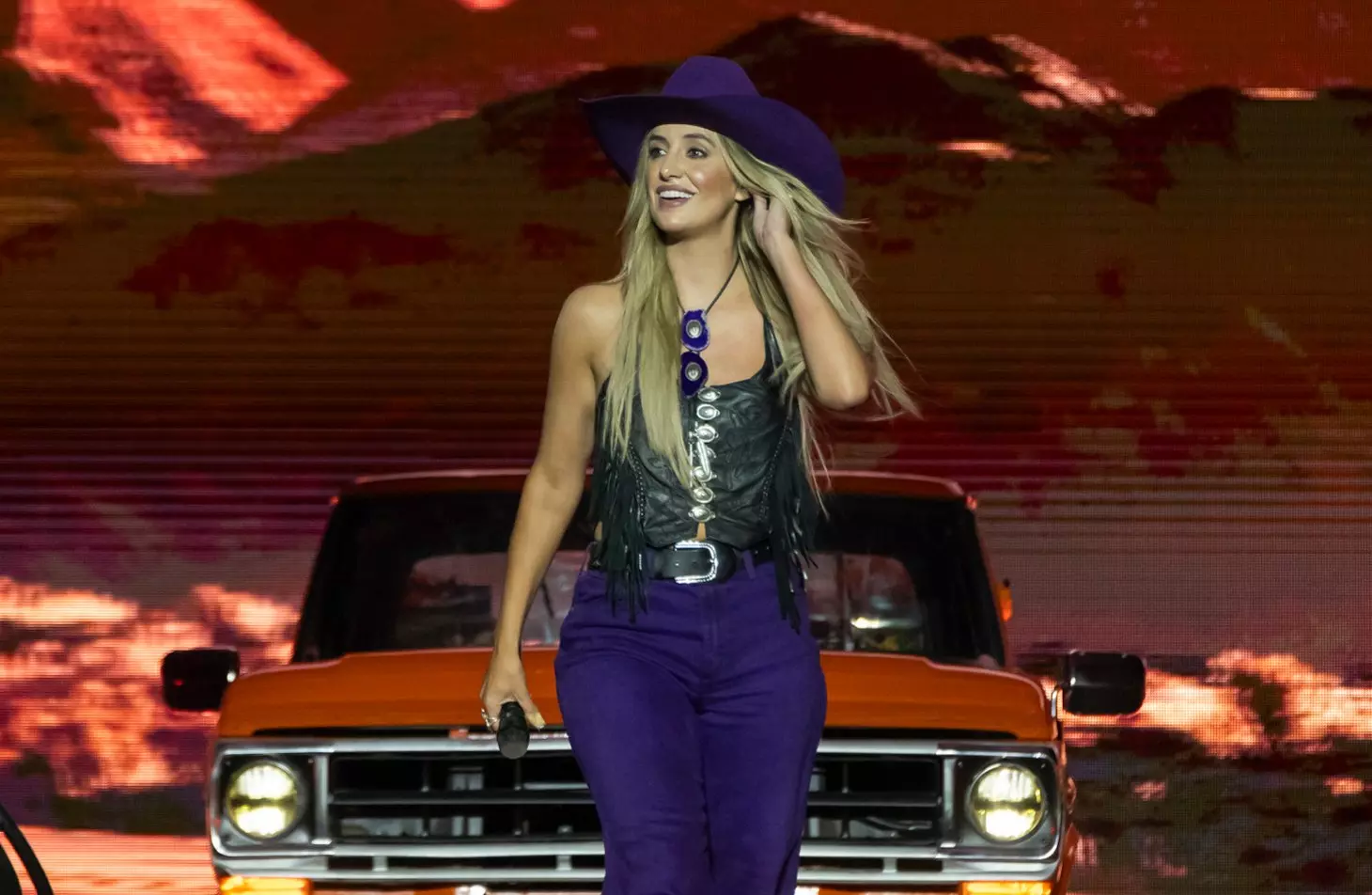
Lainey Wilson's Road To 'Whirlwind': How Superstardom, True Love & Staying Grounded Influenced Her New Album

The Heavy Heavy Performs "Happiness"
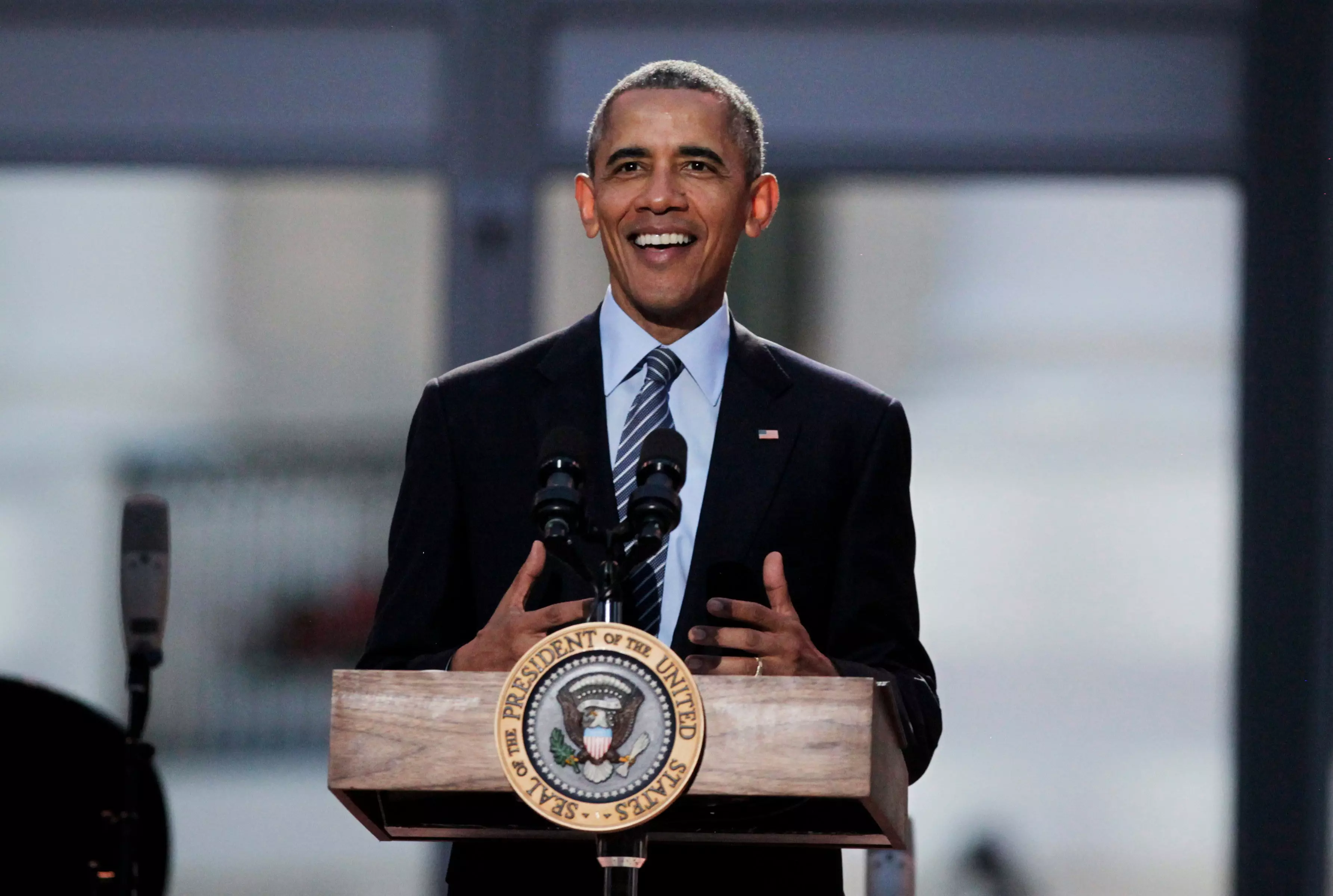
Rocking The White House: 9 Presidents & Vice Presidents Who Love Music

Gaby Moreno Shares Her GRAMMY Wins
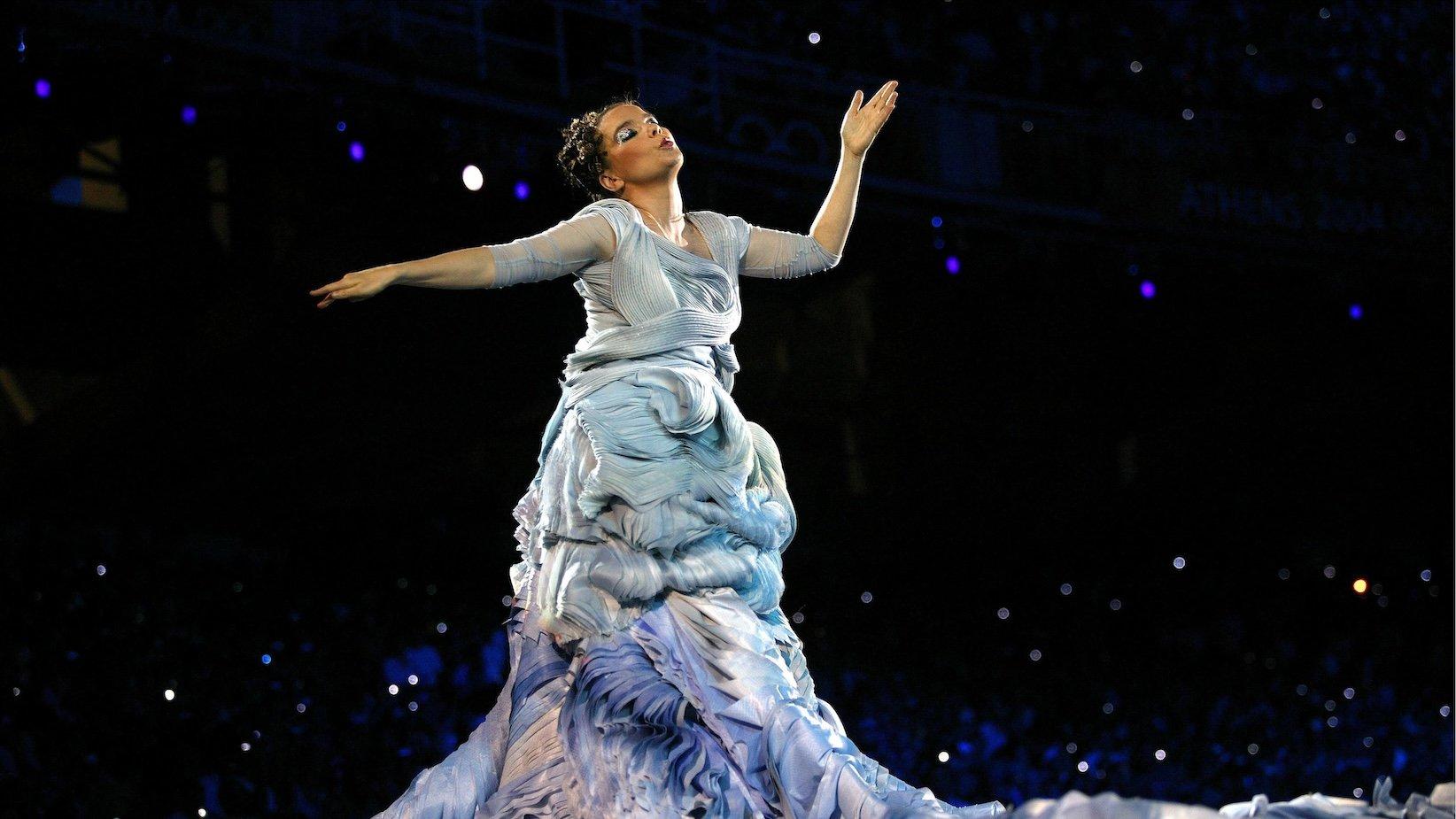
Photo: Mick Hutson/Redferns
list
When The GRAMMYs & Olympics Align: 7 Times Music's Biggest Night Met Global Sports Glory
Before the Olympic Games begin in Paris on July 26, dive into the intertwined history of gold medalists and golden gramophones.
The GRAMMY Awards and the Summer Olympics are unarguably the pinnacles of their respective fields. Indeed, most recording artists dream of making an acceptance speech for their magnum opus during the biggest night on the music industry calendar, while athletes competing in any of the Games’ 32 different disciplines are continually motivated by the lure of the podium.
But how often have the two intertwined since the first GRAMMY ceremony took place a year before Rome 1960?
Well, perhaps more than you think. Sure, the musical efforts from basketballers Shaquille O’Neal (gold at Atlanta 1996), Kobe Bryant (gold at Beijing 2008 and London 2012), and Damian Lillard (gold at Tokyo 2020) might not have registered with the Recording Academy. Likewise, those from track and field hero Carl Lewis (nine golds and one silver from four consecutive Games), light middleweight boxer Roy Jones Jr. (silver at Seoul 1988), and near-superhuman sprinter Usain Bolt (eight golds from Beijing, London, and Rio 2016).
But there are a handful of sportsmen (sadly, not yet sportswomen) who have competed for both gold medals and golden gramophones. There are also pop stars who have attempted to capture the blood, sweat, and tears of the quadrennial spectacle in musical form — whether as an official anthem, television theme, or simply a motivational tool — and been rewarded with GRAMMY recognition for their efforts.
With the Olympics’ return to Paris just around the corner (July 26-Aug.11), what better time to celebrate those occasions when the Games and the GRAMMYs align?
Gloria Estefan & Björk's Themes Pick Up GRAMMY Nods
It seems fair to say that Gloria Estefan, the Cuban hitmaker who helped to bring Latin pop to the masses, and avant-garde eccentric Björk, wouldn't appear to have much in common. They have, however, both received GRAMMY nominations in the Best Female Pop Vocal Performance category for their respective Olympics themes.
Estefan was recognized at the 1997 ceremony for "Reach," the gospel-tinged power ballad that embodied the spirit of the previous year's Atlanta Games. Iceland's finest musical export picked up a nod for "Oceania," the swooping experimental number she co-produced with Warp label founder Mark Bell which helped to soundtrack the opening ceremony of Athens 2004. And both went home empty-handed, the former losing to Toni Braxton's "Un-Break My Heart" and the latter to Norah Jones' "Sunrise."
Whitney Houston's Momentous Live Performance
The incomparable Whitney Houston might not have added to her GRAMMY haul at the 1989 ceremony — Tracy Chapman's "Fast Car" prevented her from converting her sole nod, Best Female Pop Vocal Performance, into a win — but she still stole the show. Houston owned opened the 31st GRAMMY Awards with a performance of "One Moment in Time," the nominated track that had defined NBC's coverage of the Seoul Games.
Co-written by Albert Hammond, produced by Narada Michael Walden and featuring the London Symphony Orchestra, the UK chart-topping single certainly had a first-class pedigree. But it was Houston's lung-busting vocals that made the torch song such a sports montage favorite. The iconic diva once again stirred the emotions on the music industry's biggest night of the year with a rendition that's since become a staple of her many hits collections.
Oscar De La Hoya Swaps Ring For Recording Studio
Shakira fought off some interesting company to win 2001's Best Latin Pop Album GRAMMY. Alongside records from Luis Miguel and Alejandro Sanz, the category also included Christina Aguilera's first Spanish-language affair, and a bilingual effort from champion boxer Oscar De La Hoya.
The American became a national sensation overnight when he won the men's lightweight boxing gold at the 1992 Barcelona Olympics. But despite new material from seasoned hitmaker Diane Warren and a cover of Bee Gees' classic "Run to Me," his 13-track self-titled debut didn't exactly set the charts alight. Despite the GRAMMY nod, De La Hoya hasn't entered the recording studio since.
Muhammad Ali Is Recognized For His Way With Words
But when it comes to GRAMMY-nominated boxers, then the man who famously floated like a butterfly and stung like a bee is undoubtedly the don. Shortly before he changed his name from Cassius Clay to Muhammad Ali, the light heavyweight gold medalist of the 1960 Rome Games was recognized for his amusing repartee in the Best Comedy Performance category. Hailed by some as a progenitor of the rap artform, I Am the Greatest lost out to a man slightly different in stature: portly parodist Allan Sherman.
And the sporting icon also had to experience another rare defeat 13 years later when his reading of The Adventures Of Ali And His Gang Vs. Mr. Tooth Decay lost out to Hermione Gingold & Karl Böhm's Prokofiev: Peter and the Wolf/Saint-Saëns: Carnival of the Animals in 1977’s Best Recording for Children.
John Williams' Winning Olympic Fanfare
Legendary composer John Williams is one of the most-nominated artists in GRAMMY history having amassed 76 nods since his work on detective series "Checkmate" was recognized in Best Score Soundtrack for Visual Media in 1962. Two of his wins in this remarkable tally have been Games-related.
In 1985, Williams won Best Instrumental Composition for "Olympic Fanfare and Theme," which he wrote and arranged for the Los Angeles Games the year prior. In 1989, the conductor received a nod in the same category for "Olympic Spirit," another majestic instrumental produced for NBC’s coverage of Seoul '88.
Interestingly, Wiliams isn't a particularly avid sports fan, but as he told The New York Times, he can still relate to those going for gold. "The human spirit stretching to prove itself is also typical of what musicians attempt to achieve in a symphonic effort."
Magic Johnson’s Educational Guide Wins Best Spoken Word Album
Basketball appears to produce more aspiring musicians than any sport. Marvin Bagley III, Lonzo Ball, and Brandon Clarke are just a few of the NBA names to have released albums in the last few years. But the only time a hooper has been recognized at the GRAMMYs is for an audiobook.
The year before guiding Team USA to the men's basketball gold at Barcelona 1992, Magic Johnson had bravely revealed that he'd contracted HIV, defying the stigma that surrounded it at the time. The year after his Olympic triumph, the iconic shooting guard was honored for joining the fight against the disease. Johnson won the Best Spoken Word or Non-Musical Album GRAMMY for What You Can Do To Avoid AIDS, a compassionate guide designed to educate the youth of America whose proceeds went to the sportsman's eponymous foundation.
Chariots Of Fire Is Nominated For Record Of The Year
Based on the real-life exploits of British runners Harold Abrahams and Eric Liddell at the 1924 Paris Olympics, period drama Chariots of Fire won Best Picture at the 1982 Oscars. But it’s the titular number from Vangelis' anachronistic synth-based score that remains its crowning glory.
First played as the aspiring Olympians train beachside in the slow-motion opening flashback, the instrumental not only topped the Billboard Hot 100, it also picked up a GRAMMY nod for Record of the Year. "Chariots of Fire" has since become synonymous with the more modern iteration of the Games, appearing in the BBC's coverage of Seoul '88, gracing the start of the men's 100m final at Atlanta '96, and perhaps most famously of all, being performed at London 2012's opening ceremony by none other than Rowan Atkinson's rubber-faced buffoon Mr. Bean.
Read more: 10 Essential Vangelis Albums: Remembering The Electronic Music Pioneer
Latest News & Exclusive Videos

Living Legends: Kurtis Blow On How Hip-Hop Culture Was "Made With Love" & Bringing The Breaks To The Olympics

Lainey Wilson's Road To 'Whirlwind': How Superstardom, True Love & Staying Grounded Influenced Her New Album

The Heavy Heavy Performs "Happiness"

Rocking The White House: 9 Presidents & Vice Presidents Who Love Music

Gaby Moreno Shares Her GRAMMY Wins
